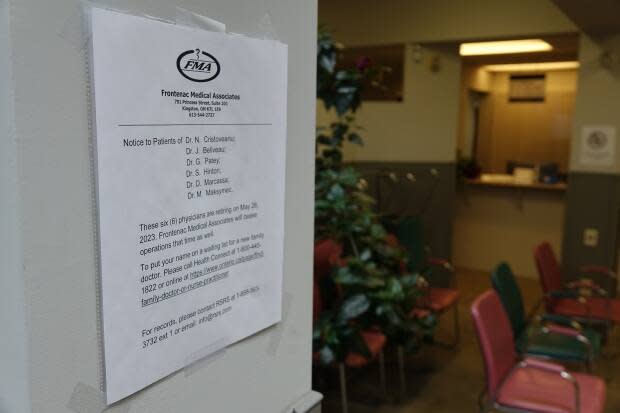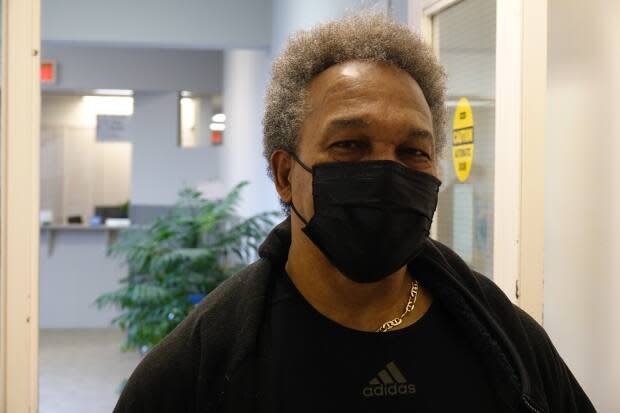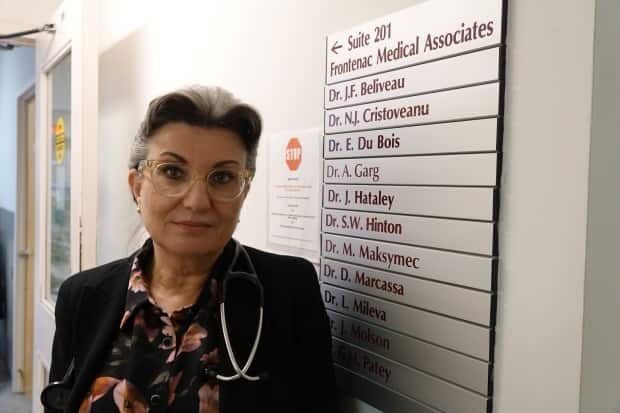Kingston clinic losing 6 doctors to retirement, leaving behind thousands of patients


Six doctors at a Kingston, Ont., clinic are set to retire at the end of May, meaning more than 8,000 patients will be without a primary care provider in a matter of months.
Dr. Nicholas Cristoveanu, who has been practising family medicine for 42 years, will join five colleagues planning to end their career at Frontenac Medical Associates this spring.
Cristoveanu said he wrestled with a combination of guilt, grief and relief when making the decision to hang up his stethoscope.
"It's certainly a lot of trepidation about leaving the patients," he said of the 1,800 people on his roster that includes, in some cases, up to four generations of the same family.
"It's very difficult. It's very emotional."
Millions of people across Ontario are without a family doctor and Kingston is no different. The clinic and city have been trying to attract new physicians, but there are still tens of thousands without.
'The perfect storm'
Cristoveanu said this points to a systemic problem.
A CBC News analysis published last January found more than 80 per cent of family physicians practising in Kingston were not accepting new patients.
Among the 125 doctors who were verifiably active in family medicine at the time, none told CBC they were accepting new patients from the general public.
A 2020 report from the Kingston Area Health Care Task force also found roughly 29,000 patients in the city were without a family physician.
Craig Desjardins, the city's director of strategy, innovation and partnerships who oversees doctor recruitment, said that number is still roughly accurate, estimating more than 20,000 people in the city don't have a doctor.
He described the loss of six physicians at once as a "disaster."
"That is like the perfect storm," said Desjardins.

Kingston has managed to attract 10 new family doctors since council voted to put $2 million of city money toward the effort.
It's offering physicians up to $100,000 if they sign on to practise in the community for at least five years, with the goal of adding 15 more doctors within eight years.
Officials are in serious negotiations with four or five more, according to Desjardins, but physicians continue to retire, meaning the additions haven't cut down on patient wait-lists.
"I'm reminded of the story of the young Dutch boy putting his finger in the dyke to try and stop the water," he said. "We're not actually making headway."
He pointed out health care is a provincial matter and the city would appreciate more financial support from the Ontario government, along with an Ontario-wide strategy that didn't pit communities against each other when it comes to getting doctors.
Government says Ontario is 'leading the country'
In a statement to CBC, a Ministry of Health spokesperson wrote nearly 8,000 doctors have registered to work in Ontario since the current government took office in 2018.
The province is "leading the country with 90 per cent of Ontarians having a family doctor or primary health-care provider," spokesperson Hannah Jensen wrote in the email.
Jenson also wrote the government has added positions at medical schools and worked to allow internationally-educated health-care workers to get a job in Ontario.
Cristoveanu said he and the other doctors at the clinic have been trying to give it an injection of "younger blood" for years.
They placed ads in medical magazines, built connections with graduating medical residents and even tried recruiting services, but had no luck.
Patients losing their 'quarterback'
Cristoveanu said the real burden is carried by the patients who don't have a doctor to act as their "quarterback," helping them navigate the system and connect them with specialists.
Devoe Dyette is facing that reality soon. He was a patient of Dr. Gregory Patey for 30 years and describes him as "caring" and "irreplaceable."

Patey is among those set to retire this spring leaving Dyette, his ex-wife and children without a doctor.
"We don't know where to turn," he said during a visit to the clinic on Wednesday. "It's frightening."
Two doctors will remain at the clinic after the other six retire.
Dr. Lili Mileva, part of the remaining pair, said she's taken on as many of her colleagues' patients as she can.
She isn't sure what the health centre will look like after they're gone.
"I feel sad that I cannot help everyone," Dr. Mileva said. "I need to say no, just as a self preservation, because it's humanly impossible to take 8,000 patients."



